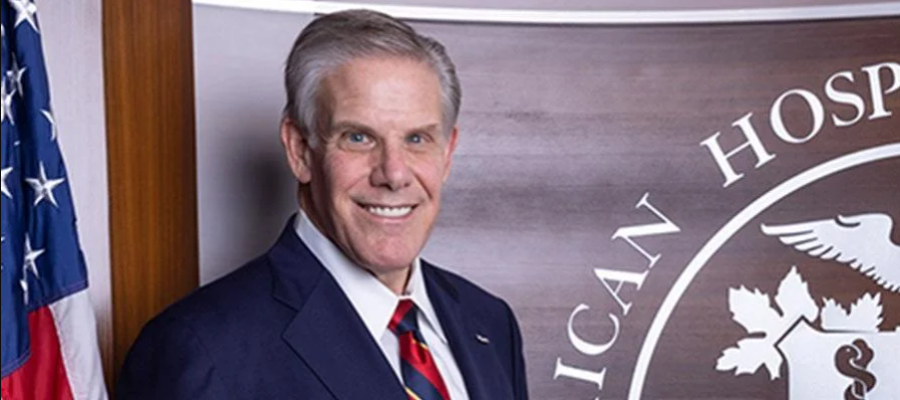Uniting to Protect Access to Care

The fate of the Trump administration’s legislative centerpiece — the One Big Beautiful Bill Act — continues to be the focal point in Washington, D.C.
After the bill’s narrow passage in the House, the Senate is working to put its own stamp on the reconciliation package, which encompasses policy changes on taxes, border security, energy and deficit reduction, including significant changes and cuts to Medicaid and other health care programs. Republicans are aiming to have the legislation through the Senate by the July 4 congressional recess; however, any changes made by the Senate would have to go back to the House for approval.
We continue to express concern about the harmful Medicaid and Health Insurance Marketplace provisions included in the House-passed bill, which would cut more than $800 billion from health care programs and result in almost 11 million people losing health care coverage. These cuts will strain already overburdened hospitals and emergency departments as they become the family doctor for millions of newly uninsured Americans, which makes care less accessible for everyone. They also would also set off a damaging ripple effect of job and economic losses as hospitals and communities struggle to manage under the weight of these cuts. Moreover, these payment reductions will simply become an additional “hidden tax” on other purchasers of health care services.
In particular, we also continue to be focused like a laser beam on ensuring the preservation of legitimate provider tax and supplemental payment programs, which serve as patches to help finance a chronically underfunded Medicaid program. The notion that these programs represent waste and fraud are far from the truth, as they operate within federal guidelines and are approved by state governments and by both Democratic and Republican administrations, including the Trump administration. Yet even with these financing mechanisms, Medicaid payments to providers are less than the cost of caring.
The Senate Finance Committee, which has jurisdiction over taxes and Medicaid, as soon as this week could release its legislative text, and there have been some discussions about additional restrictions on Medicaid state directed payments and provider taxes. This would further exacerbate the chronic underpayment for Medicaid services and threaten access to care for all patients in communities across the country.
We continue to pull all levers to limit the scope and magnitude of health care reductions contained in this package. We have been meeting with senators and their staff to explain the devastating effects some of the policy changes under consideration would have on the people and communities they represent.
Meanwhile, the AHA is running targeted advertising using multiple platforms, including digital, social and traditional media, urging Congress to protect Medicaid and access to care. At the same time, the Coalition to Strengthen America’s Healthcare, of which the AHA is a founding member, is running ads on TV, podcasts, radio, newsletters and other digital platforms targeted at key senators and influencers. The Coalition also is engaging its grassroots supporters, and since February, the Coalition has generated more than 400,000 letters to Congress about the importance of Medicaid.
On Tuesday, June 17, we will host an Advocacy Day in Washington, D.C., during which our team will provide the latest updates on the reconciliation bill before hospital and health system leaders meet with their lawmakers. on Capitol Hill. If you cannot be in Washington, AHA members can register to participate in the event virtually.
In addition, we continue to produce new resources, including how the bill’s Medicaid reductions could lead to job and economic losses in states, as well as why Medicaid is so important to rural hospitals and communities. We also are running a video series in which hospital and health system leaders share the importance of Medicaid and how drastic cuts would impact access to care for their patients and communities.
We’re at a critical juncture. It’s so important for hospital leaders, patients and community members to weigh in now with your senators and tell them “Don’t Cut Hospital Care.” Your stories have the most impact with your lawmakers, and now is the time to tell them.

